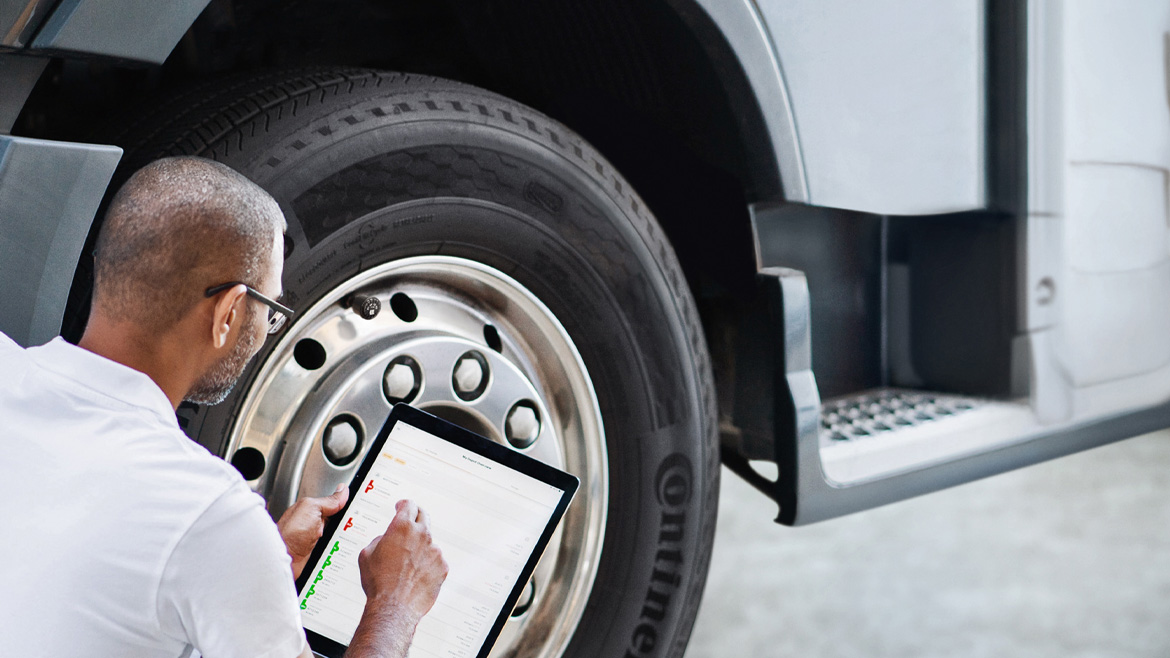Distribution
Vehicle technology trends are reinventing tire solutions for beverage fleets
Tire manufacturers turn to smart technology, accommodate EV needs

Over the next several years — likely through the end of the decade — we can expect a number of technological trends to drive conversations in the commercial truck tire market. There are three in particular that will garner a significant amount of attention, as they’re, essentially, a response to overarching developments in the overall fleet equipment space.
1. EV-Ready Tires
The advent of electric delivery vehicles has prompted tire manufacturers to design options with electrification in mind.
Last year, Goodyear Tire & Rubber Co. introduced RangeMax RSD, the company’s first EV-ready tire for regional fleets — and the first regional drive tire to be embossed with Goodyear’s “Electric Drive Ready” designation. Goodyear says the tire was engineered with energy-efficiency in mind and is equipped to handle the higher load capacities of EVs. It was devised to deliver lower rolling resistance than comparable tires, to help enhance fleet efficiency. The release of the RangeMax RSD follows the introduction a year earlier of Goodyear’s Endurance RSA ULT, its first equipped specifically for the higher load capacity of commercial EVs.

Meanwhile, Michelin recently surveyed customers about their top concerns related to EVs. Among those is “range anxiety,” i.e.: how to maximize the charge range and performance of such vehicles. Michelin argues that tires are the most important range-extending feature on EVs. With such longevity in mind, expect to see a focus on tires with greater wear performance.
Another concern is noise. Since EVs run dramatically more quietly than traditionally fueled vehicles, tire manufacturers are focusing on noise-dampening technology to ensure a quieter ride — especially on uneven road surfaces, which can exacerbate noise.
Goodyear recently unveiled its proprietary SoundComfort technology, a built-in sound barrier that helps reduce interior vehicle noise for its consumer-targeted electric passenger vehicles.
Expect tire suppliers to increasingly apply such technology to commercial vehicles as well.
2. Autonomous Truck Tires
At the beginning of 2024, Goodyear and an autonomous vehicle technology company announced that they had integrated the former’s intelligent tire technology into the latter’s autonomous driving system.
During on-road testing, Goodyear’s SightLine tech fed real-time data on road conditions and overall tire health, which has enabled Gatik to improve its autonomous vehicle controllers with insights on accurate cornering and braking stiffness, rolling resistance and tire load.
The feedback loop between the two technologies has enabled Gatik performance enhancements, such as the ability to adapt quickly and safely to a range of road conditions, even when the weight of the truck varies by delivery.
3. Digital Tire Management
Autonomous vehicles, will, for the foreseeable future, remain a minuscule portion of the delivery trucks on the road, but smart tire technology has much broader applications for vehicles and fleets of all shapes and sizes.
Continental Tire announced in December that it’s offering an entry-level solution to equip fleets more quickly and easily for digital tire management. A new valve cap sensor, which screws directly onto a truck’s tire valve, measures tire pressure in real time. It’s compatible with commercial vehicle tires from all major brands and connects to Continental’s ContiConnect receiver units.
Anomalies are recorded in the tire management platform and then forwarded to the user. The valve cap sensor features a QR code, which is used to assign the sensor to the respective tire position. All data collected is displayed in the ContiConnect On-Site app and accessible via web portal. Smart digital technology is now at the fingertips of even the most modest of fleets.
Looking for a reprint of this article?
From high-res PDFs to custom plaques, order your copy today!





